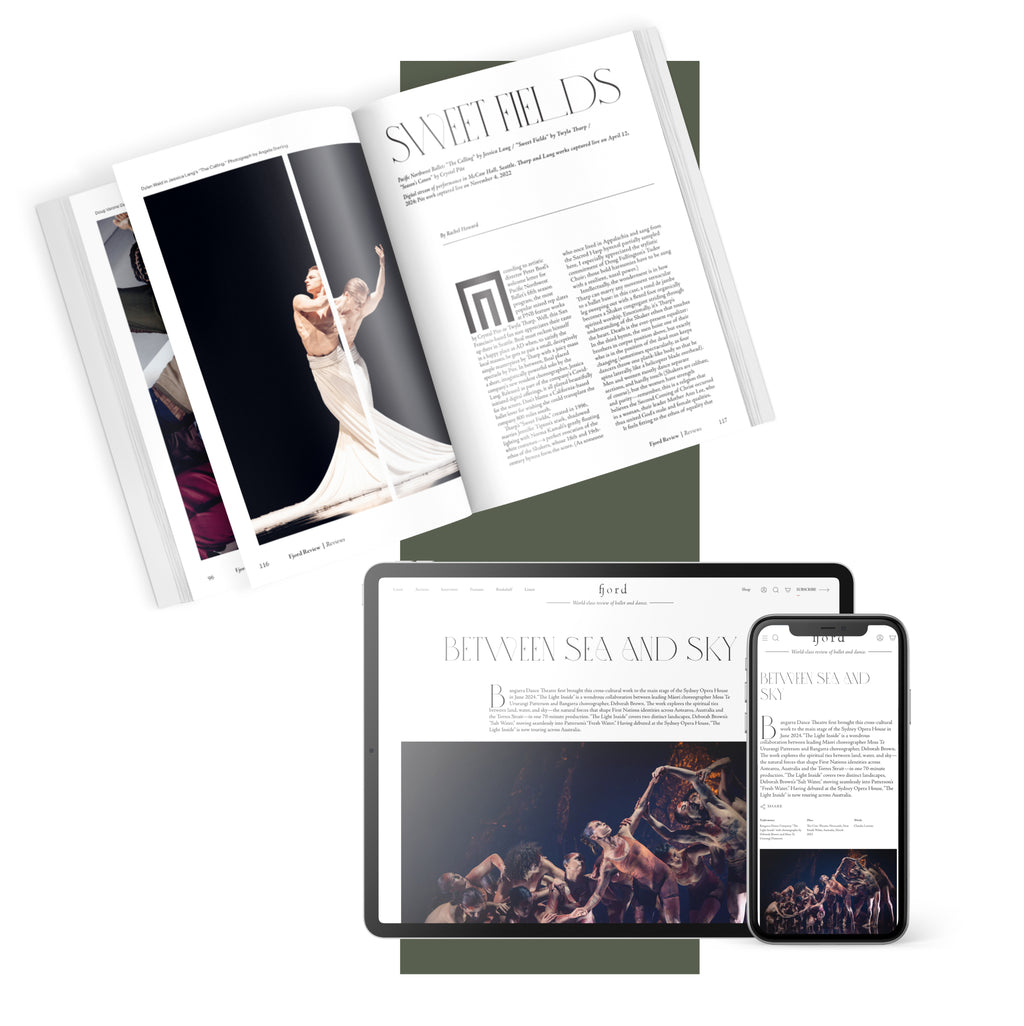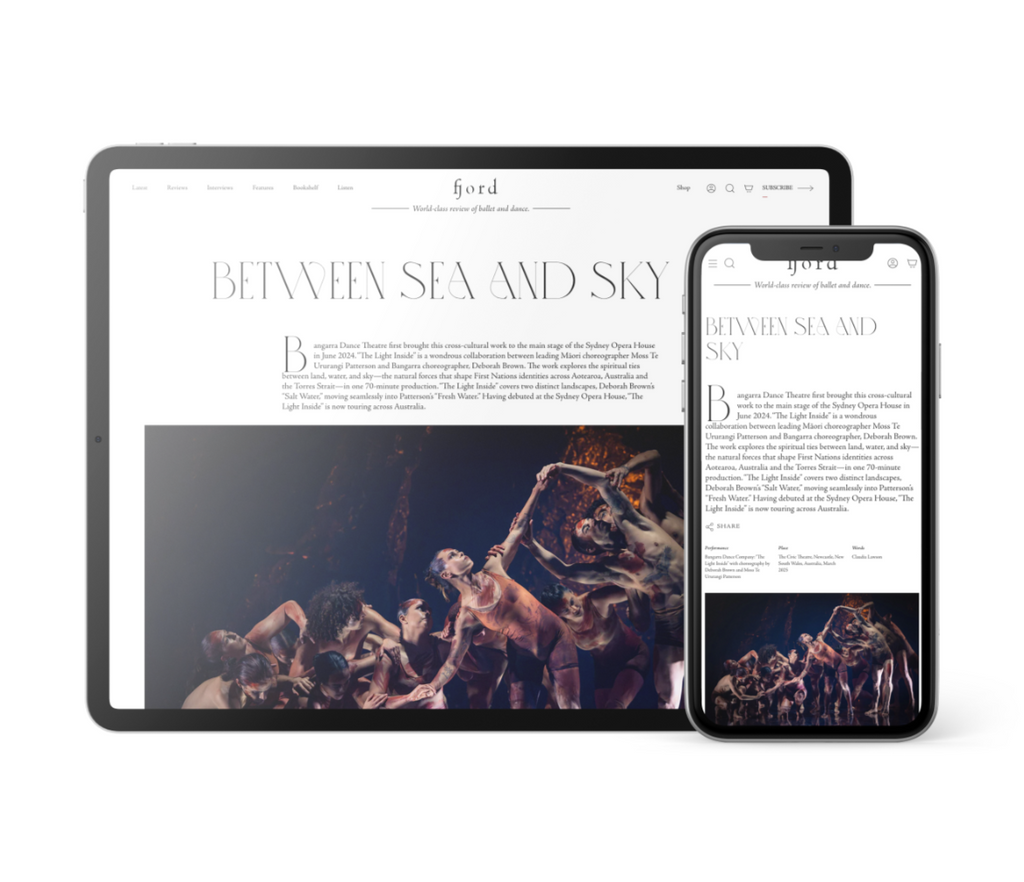The Music Within
Cleveland native Dianne McIntrye received a hometown hero's welcome during her curtain speech prior to her eponymous dance group thrilling the audience in her latest work, “In the Same Tongue.”
Continua a leggere
World-class review of ballet and dance.
A ballet body is essentially a deformed body. The older and more experienced the dancer, the more evident–and beautiful–this deformation is. Years of daily classes, rehearsals, and performances transform the musculature, creating an instrument capable of performing magnificent feats. Still, watching a dancer at the beginning of their career is no less enchanting. One sees the potential, the future great performances, the body testing its training and, hopefully, triumphing. Stardom or perhaps injury or perhaps a career on the sidelines awaits; nevertheless, the possibility of all three hums within each and every movement. In short, it’s exciting.
Performance
Place
Words



“Uncommonly intelligent, substantial coverage.”
Your weekly source for world-class dance reviews, interviews, articles, and more.
Already a paid subscriber? Login

Cleveland native Dianne McIntrye received a hometown hero's welcome during her curtain speech prior to her eponymous dance group thrilling the audience in her latest work, “In the Same Tongue.”
Continua a leggereA man, much to his wife’s chagrin, has a nasty little habit: at night, he turns into a bat and flies out of their marital bed to partake in all kinds of infidelities.
Continua a leggereThe Japan Society continued its Yukio Mishima Centennial Series with a newly commissioned dance work titled “The Seven Bridges (Hashi-zukushi)” based on Yukio Mishima’s short story by that name originally published in 1956.
Continua a leggereLondon is a changed city this week. The cold front has come, and daylight hours have plummeted. The city is rammed with tourists, buskers, and shoppers.
Continua a leggere
comments